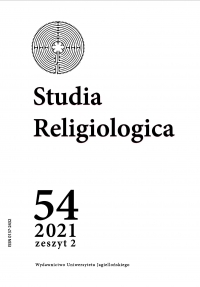Tradycja ustna i pisemna Koranu a jego miejsce we wczesnym islamie
The Oral and Written Traditions of the Qur’an and Its Place in Early Islam
Author(s): Marcin GrodzkiSubject(s): Theology and Religion
Published by: Wydawnictwo Uniwersytetu Jagiellońskiego
Keywords: Qur’an; Qur’anic studies; early Islam; sacred text codification and canonization; late-antique Middle East
Summary/Abstract: The paper considers the form, status, and importance of the Qur’anic message in the first two centuries of Islam. The argument is that the term “Qur’an” could not have originally referred to the final body of revelation in a text form. Rather, the concept of the Qur’an must have functioned among the faithful as a term for oral transmission before the scripturalization of the revelation, and it is this oral function of the Qur’an that is primal to its literate function. It seems that just as in Judaism and Christianity, in Islam the process of remembering, passing on, collecting, and codifying the textus receptus, along with its stabilization and sacralization, was a centuries-long self-propelled operation shaped primarily by the oral tradition (especially in the presumed culture of illiterate people).
Journal: Studia Religiologica. Zeszyty Naukowe Uniwersytetu Jagiellońskiego
- Issue Year: 54/2021
- Issue No: 1
- Page Range: 45-62
- Page Count: 18
- Language: Polish

